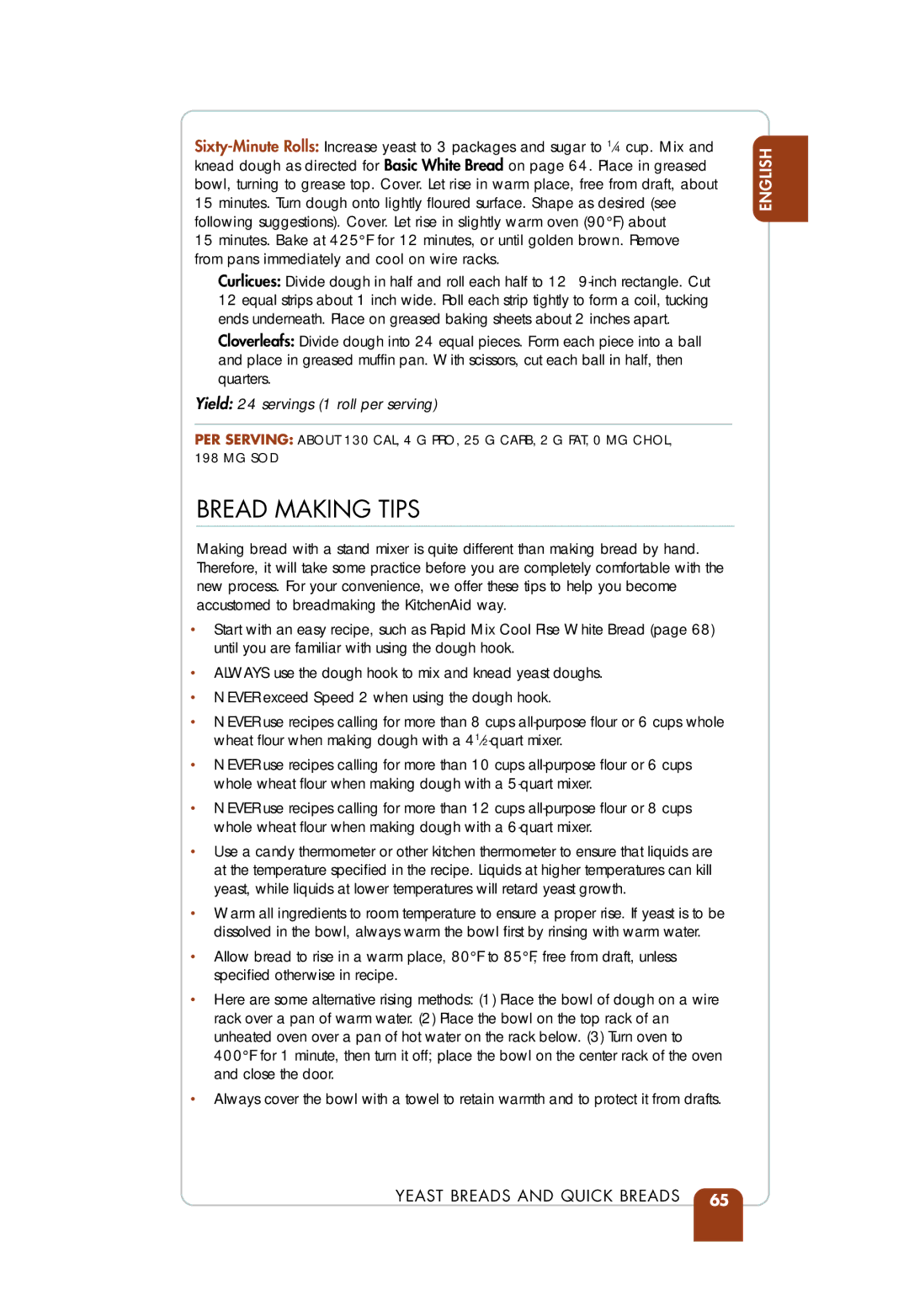
15 minutes. Bake at 425°F for 12 minutes, or until golden brown. Remove from pans immediately and cool on wire racks.
Curlicues: Divide dough in half and roll each half to
Cloverleafs: Divide dough into 24 equal pieces. Form each piece into a ball and place in greased muffin pan. With scissors, cut each ball in half, then quarters.
Yield: 24 servings (1 roll per serving)
PER SERVING: ABOUT 130 CAL, 4 G PRO, 25 G CARB, 2 G FAT, 0 MG CHOL, 198 MG SOD
BREAD MAKING TIPS
Making bread with a stand mixer is quite different than making bread by hand. Therefore, it will take some practice before you are completely comfortable with the new process. For your convenience, we offer these tips to help you become accustomed to breadmaking the KitchenAid way.
•Start with an easy recipe, such as Rapid Mix Cool Rise White Bread (page 68) until you are familiar with using the dough hook.
•ALWAYS use the dough hook to mix and knead yeast doughs.
•NEVER exceed Speed 2 when using the dough hook.
•NEVER use recipes calling for more than 8 cups
•NEVER use recipes calling for more than 10 cups
•NEVER use recipes calling for more than 12 cups
•Use a candy thermometer or other kitchen thermometer to ensure that liquids are at the temperature specified in the recipe. Liquids at higher temperatures can kill yeast, while liquids at lower temperatures will retard yeast growth.
•Warm all ingredients to room temperature to ensure a proper rise. If yeast is to be dissolved in the bowl, always warm the bowl first by rinsing with warm water.
•Allow bread to rise in a warm place, 80°F to 85°F, free from draft, unless specified otherwise in recipe.
•Here are some alternative rising methods: (1) Place the bowl of dough on a wire rack over a pan of warm water. (2) Place the bowl on the top rack of an unheated oven over a pan of hot water on the rack below. (3) Turn oven to 400°F for 1 minute, then turn it off; place the bowl on the center rack of the oven and close the door.
•Always cover the bowl with a towel to retain warmth and to protect it from drafts.
ENGLISH
